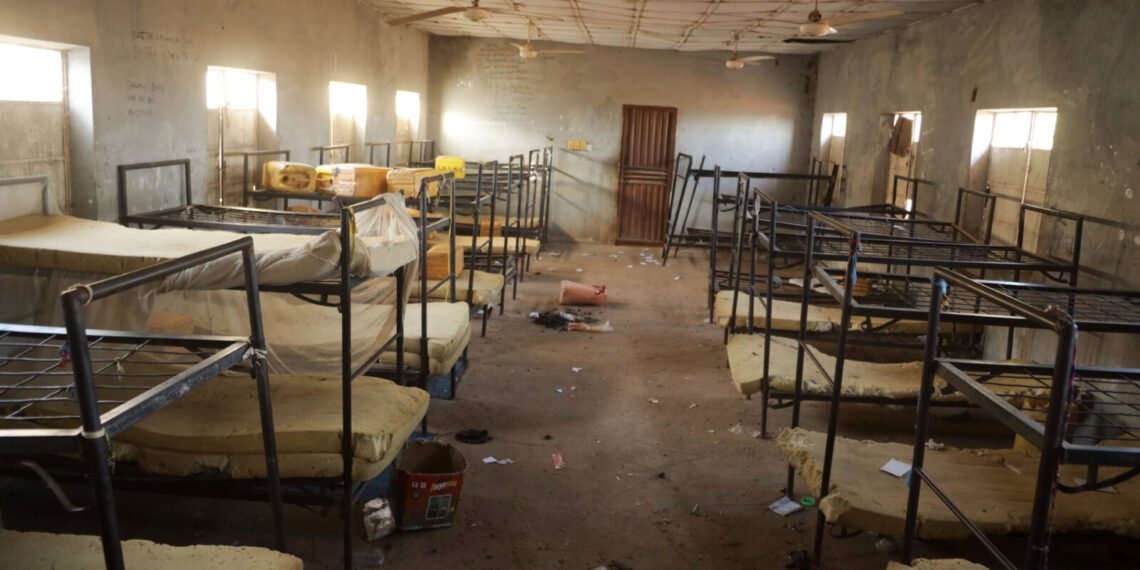Northern Nigeria is witnessing a quiet but massive collapse of its boarding-school system, as rising insecurity and a recent surge of mass kidnappings force state governments to shut down hostels, evacuate students, and suspend boarding indefinitely. The move is rapidly reshaping education in regions historically reliant on boarding as the norm.
Schools Targeted, What’s Sparked the Shutdowns
The latest and most dramatic example is the attack on St. Mary’s Catholic School in Papiri, Agwara Local Government Area, Niger State, where on 21 November 2025 gunmen abducted hundreds of students and staff. What began as a late-night raid on sleeping hostels ended up being one of the largest school kidnappings in recent memory: reports say 303 students and 12 teachers were seized.
According to a verification exercise, the number of victims rose from an initial 215 to more than 300 after census updates.
In the wake of the attack, many other states quietly issued directives to suspend boarding, especially in areas deemed vulnerable or adjacent to forests and bush paths often used by bandits.
One school administrator in Niger State, speaking on condition of anonymity, told our reporters:
“We were ordered to shut the hostels immediately. The risks are too high now.”
Read Also:
- UN demands stronger action as kidnappings spike in North-Central
- Niger Government condemns papiri school kidnapping, warns against ignoring security directives
- Family raises alarm over unconfirmed kidnapping of Ayotunde Obatuyi near Kabba
Across states such as Zamfara, Sokoto, Kaduna, and bordering regions, similar directives have been issued, affecting both public and private institutions.
A Growing Pattern of Abductions
The attack at St. Mary’s is not isolated. Just days earlier, armed men stormed a girls’ boarding school in Government Girls Comprehensive Secondary School, Maga, in Kebbi State, abducting 25 schoolgirls on November 17.
Although all 24 girls have since been reportedly released, the combined string of attacks across multiple states has reignited fear among parents and education authorities.
Security analysts warn that the scale and frequency of these kidnappings targeting children as young as those in primary school mark a disturbing new chapter in Nigeria’s long-running security crisis.
From Boarding School Pride to Silent Exodus
Boarding schools have long been pillars of education in northern and central Nigeria. But with hostels now emptied, classrooms locked, and dormitories abandoned, the tradition is rapidly unraveling.
Parents are pulling children out, some permanently. Others are sending their wards to cities in the South or choosing day schools despite long commutes.
A father in Kaduna told us:
“I don’t mind travel time, I just want my daughter alive. Boarding is no longer safe.”
Teachers say many staff are resigning or relocating. Dorms that once housed dozens now stand silent; fees meant for school upkeep are unpaid as funding dries up.
Official Response: Shutdowns Are a “Necessary Sacrifice”
Education officials in affected states defend the closures as painful but necessary. One commissioner said off-the-record:
“No government wants to shut schools. But we cannot hide behind optimism when children become targets. Safety must come first.”
At the federal level, calls to revive hostels under the Safe Schools Initiative remain largely unfulfilled as poor rural infrastructure, limited manpower, and overstretched security forces hinder meaningful implementation.
A senior officer, speaking anonymously, told our reporters:
“Even with deployment, you can’t stretch protection across every remote school. The terrain, the villages, it becomes impossible.”
The Price of Fear: What Closure Means for Students
Human rights, education, and child welfare advocates warn of long-term harm:
Rising rates of school dropouts, especially among girls
- Increased child labour and early marriage in rural areas
- Loss of trained teachers and institutional memory
- Setbacks in literacy and secondary education targets
“Every day a school stays closed, Nigeria loses more than just students; it loses its future,” said an education rights activist.
Parents Demand Action
Many parents are not opposed to temporary closures, but they want clear plans for reopening and safety guarantees.
One mother from Niger State urged:
“If you cannot protect our children, say so. Don’t play with their lives. Then we will know where to go.”
As security forces battle insurgents, bandits, and marauders, many rural boarding schools face existential risk. Unless governments act swiftly with functional security upgrades, community collaboration, and transparent communication, the boarding school tradition may vanish from large parts of northern Nigeria.
For now, classrooms remain empty, dormitories ghostly, and students wait, hoping for a day they can safely return to school.






